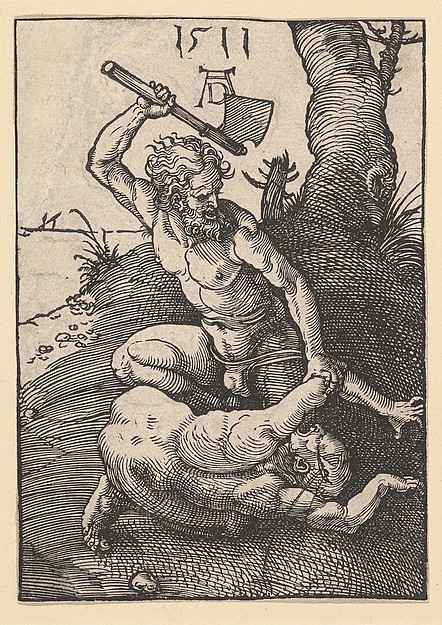“Am I my brother’s keeper?”
Outside the fact that Cain had already killed is brother, this doesn’t seem like a particularly damning thing to say.
Maybe somewhat calloused. Somewhat disconnected, dismissive. But in our distracted, transitory, and dispassionate culture our relational connections are pretty flimsy. Relational expectations are at an all time minimum.
Ty Grigg was preaching on this passage last week and noted how Abel was called a “keeper of sheep” (Gen. 4:2). In other words, Abel was a shepherd, a herdsmen—or in older english, a pastor.
After Abel’s murder, God asks Cain, “Where is your brother? You know, the keeper of sheep?” And Cain responds with a question of his own, “Am I my brother’s keeper.”
Cain is asking, “Am I my brother’s shepherd? My brother’s pastor?” He doesn’t need—or want—to shepherd his brother. In fact, he has no care or regard for his brother at all.
These words make know what had been in Cain’s heart all along—even before the murder.
Cain had already refused relationship with Abel.
He had canceled the family connection.
He had quit the kinship.
Crouching, ready to pounce
We have two house cats who have never lived outside. But they know how to pounce. At least they didn’t when they were younger.
If we got a little cat-toy out and started dragging it around the floor the cats would come and play. Generally they would slide close to the ground, with their legs pulled up behind them. Couched down they would start rocking back and forth in excitement.
And then…they would explode and grab the ball of yarn.
Crouching always leads to pouncing.
This is was sin for Cain.
When God didn’t look favorably on Cain’s sacrifice he became angry. And God knew this anger would turned to bitterness, and bitterness to resentment. And ultimately this would lead to murderous thoughts and actions.
Or as Yoda says, “Fear leads to anger, anger to hate, and hate…to suffering.”
So God warns Cain that “sin is crouching at your door; it desires to have you, but you must rule over it” (Gen. 4:7).
Sin is crouching.
Sin is ready to pounce.
Sin is a wild animal stalking it prey, ready to devour Cain.
What is Cain going to do?
He needs to think like a shepherd, like his brother (which is probably the last think he wants to do). Cain needs to act like someone who knows how to protect a flock from a predator, from the ones crouching and pouncing.
Sin is attacking Cain, and through Cain is attacking Abel.
But Cain is unwilling to “tend” to himself. Cain does not shepherd himself by protecting against bitterness and anger. Cain doesn’t overcome the sin before him.
Instead he is devoured by it.
And sin devours his brother also.
While Sin is Crouching the Good Shepherd is Tending
But Jesus is not devoured by sin.
Jesus is the good shepherd, who in the desert first tended—or shepherded—himself through the temptations. He resisted sin when it stalked him in the wilderness. And Jesus overcame sin when it pursued him on the cross, and into the grave.
Jesus—the good shepherd—would rather die for his sheep than kill his enemies. He is truly is his brother’s and sister’s keeper—the one who pastors, protects, and provides for all the children of God.
Am I my brother’s/sister’s keeper?
Will we, like Jesus, pursue love even when sin is pursuing us? Will we tend to our relationships even when sin is crouching at the door of our hearts, our thoughts, our imaginations? Will we shepherds our relationships even when jealously, bitterness, fear or shame seeks to devour us?
Unlike Cain who did not love his brother, “We know love by this, that he laid down his life for us—and we ought to lay down our lives for one another” (1 John 3: 16).


One reply on “Really, My Brother’s Keeper?”
[…] account for the other. Out of this not “seeing” or “caring” for one another (see link, HERE), ideological and cultural wars rage. And Abel’s blood is spilled and “cries out from […]